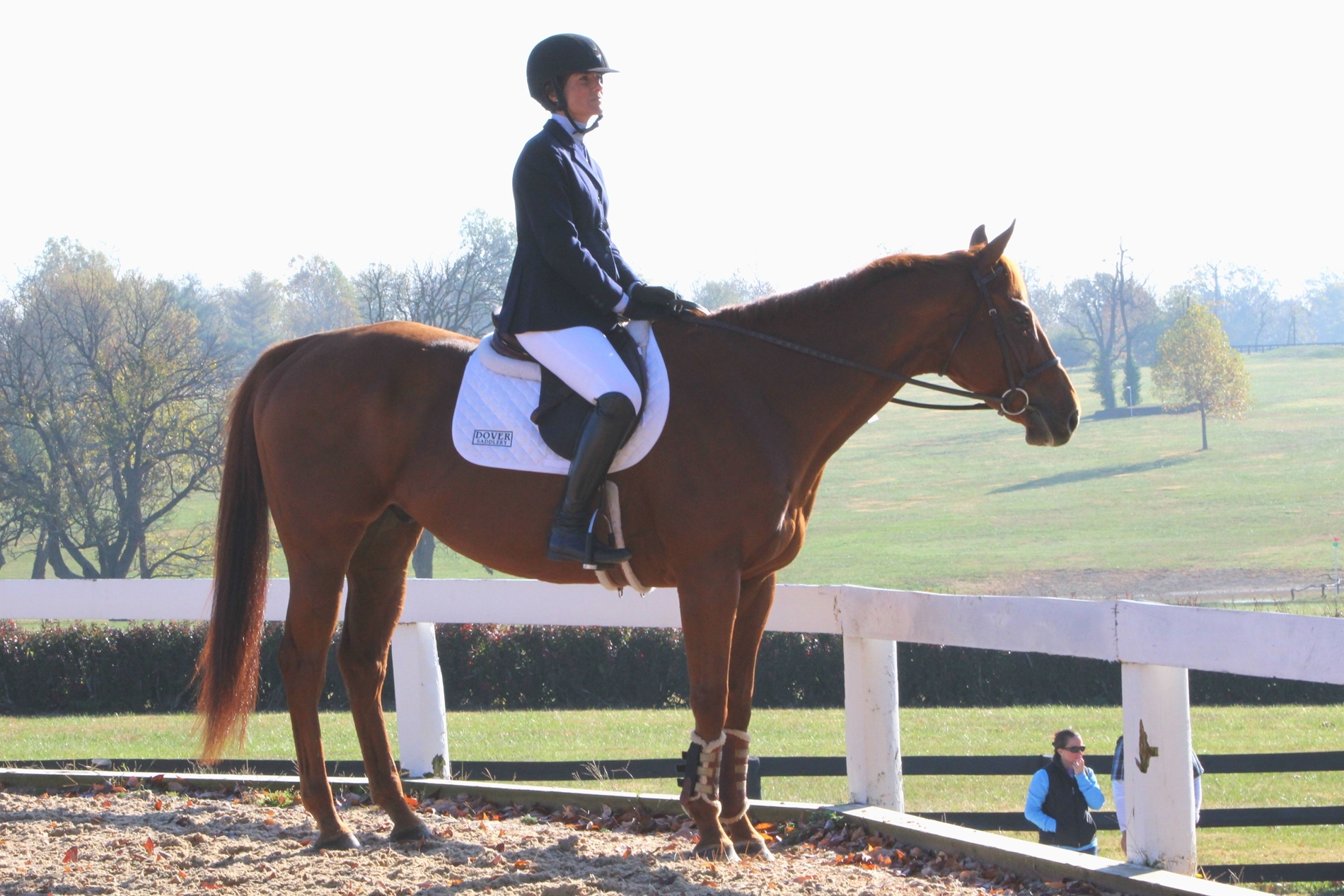By: Erin Shea,
@BH_EShea
The 64 organizations accredited by the Thoroughbred Aftercare Alliance are as diverse as the aftercare landscape itself. Many adopt out former runners for second careers, others are sanctuaries, and some are organizations that help both horses and humans.
In addition to helping Thoroughbreds, there is one similarity among all of the nonprofits—they've all passed the rigorous test that is the TAA accreditation process. This means that not only do they receive grant money, but their standards of equine care, facility management, and business practices are all up to the TAA's standards.
"The accreditation process is incredibly detailed. It's really soul-searching," said Kim Smith of Second Stride, a Crestwood, Ky. nonprofit that focuses on rehabilitation, retraining, and placement of off-track Thoroughbreds.
"For us, it really upped our level of sustainability for the hopes of when this current founding board diminishes, that the program will continue to thrive and grow and be here to help horses transition off the track in our area."
Like many organizations adopting out horses, much of Second Stride's time and effort goes to retraining. But due to their proximity to Churchill Downs and nearby training facilities, the organization has a number of racing professional volunteers and offers services that aren't typically expected of an aftercare organization, such as castrating, herd acclimation, and breaking. Smith said Second Stride also occasionally works with local equestrians who were mismatched with a Thoroughbred.
Another accredited organization with a slightly different goal is War Horses at Rose Bower. Founded by Barbara Luna in 2013, the organization near Appomattox, Va. aims to take in retiring racehorses (mostly geldings) who are at least 7-year-olds or have made at least 70 starts.
Luna, who was previously the program administrator for Turning for Home and the editor of the Pennsylvania Horsemen's Association News, became especially connected to the older "war horses" and felt compelled to create an organization to help them.
"I set myself up to make it a little more difficult because I really felt for these older horses because they make money for so many people," Luna said, adding that her organization has received some horses with recognizable names, such as New Jersey-bred Horse of the Year Hermosillo, who is one of two pensioners at her farm.
While War Horses at Rose Bower does adopt out horses, most of the horses Luna gets are 9 or older. With their long on-track careers, soundness for competitive second careers can be an issue, so Luna is looking into expanding her nonprofit to offer human-horse therapy programs in the future.
For Luna, the TAA accreditation represented the hard work she's put into her entire career in the racing industry.
"That was the main thing for me—being acknowledged for what I was doing and that I was doing a good job," she said of earning the accreditation. "... It just made me feel like, 'Yes, somebody thinks I'm doing something right.' "

Centripital, a graduate of War Horses at Rose Bower, competed at the 2016 Thoroughbred Makeover with rider Stacey Fitzgerald. Photo courtesy of Barbara Luna.
Helen Meredith also has a soft spot for older war horses. In 1994, after learning about Thoroughbreds ending up at slaughter, Meredith started the United Pegasus Foundation, which now has 75-100 horses at any given time at its farm near San Jacinto, Calif.
"It is (a large herd) but they're all out in paddocks. Anything that comes off the track that can't go out with a herd that has to be cooped up—that's no life," Meredith said, adding that she's also had a few notable runners at her facility—including Breeders' Cup Sprint (G1) winner Cardmania, who was trained by her husband Derek Meredith, and $1.5 million-earner Music Merci.
Since more than half of her herd is older than 20, Meredith said the facility operates as a permanent home but does adopt our horses too.
"We are a permanent sanctuary home. Even in our adoption contract, anything that's adopted from us, we'll always take back," she said.
Although United Pegasus Foundation receives grant money, from the TAA and other sources, Meredith, like many nonprofit leaders, still sees funding as the biggest concern her organization faces.
"We're very committed to what we do, we try to help as many Thoroughbreds as possible," she said. "Because they live a long time, often we have limited space, but obviously the more money you have, the more you can do—that's what it's all based on."




